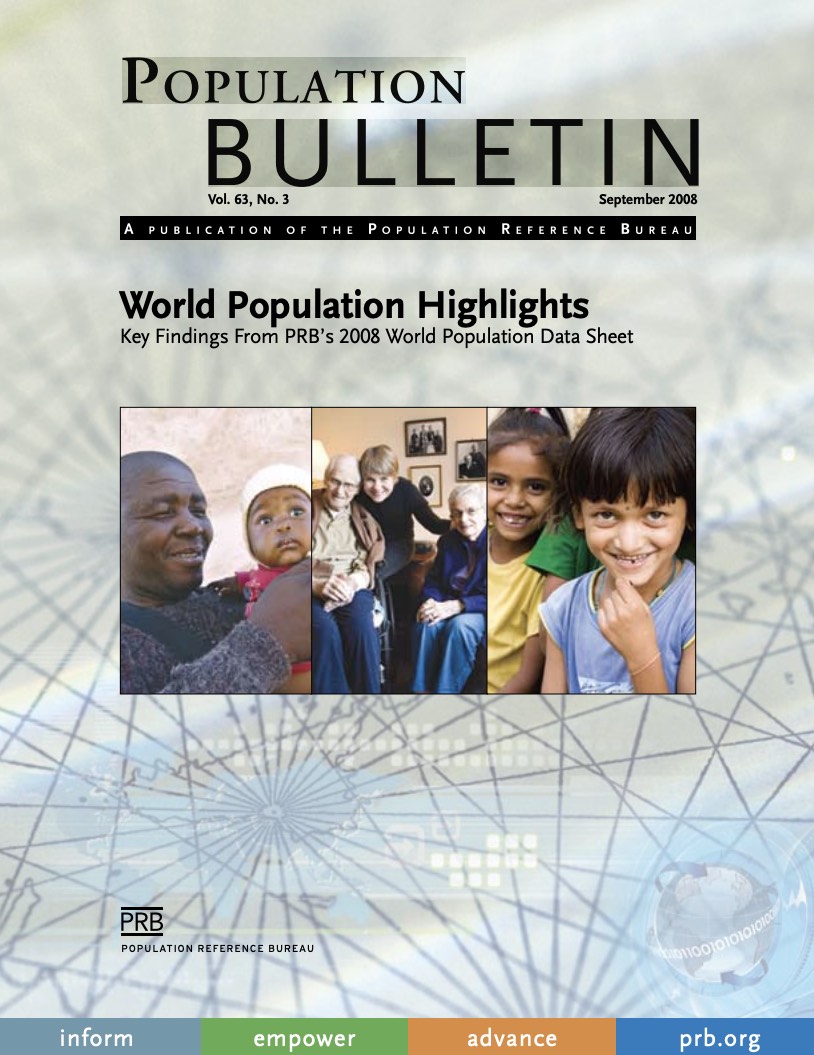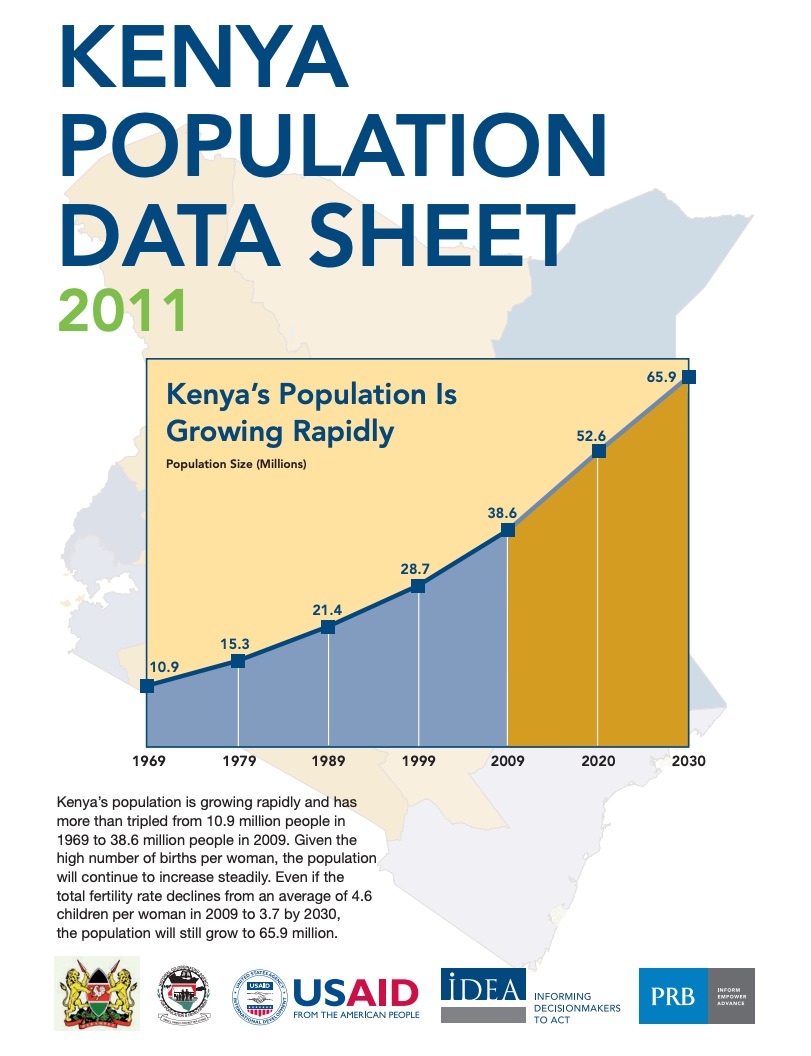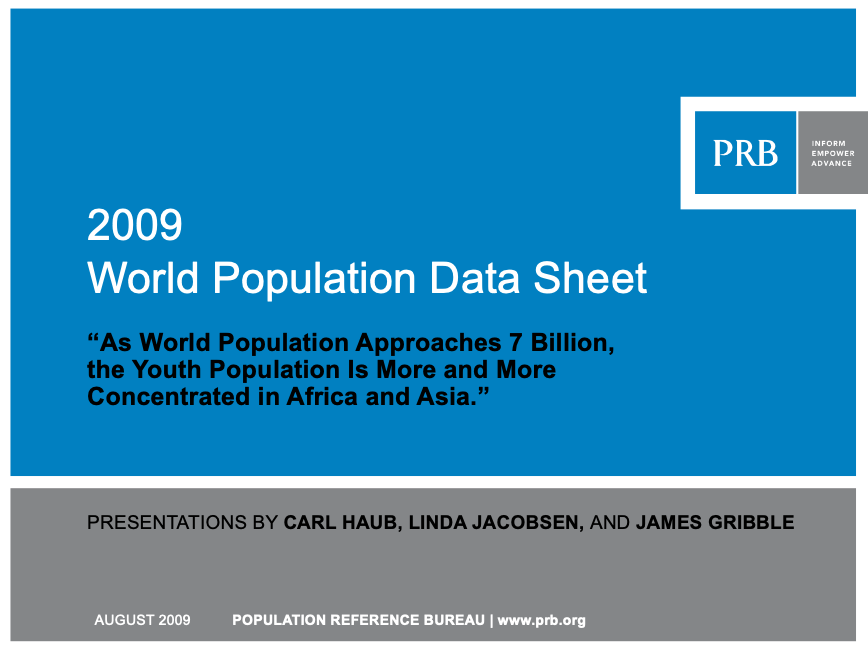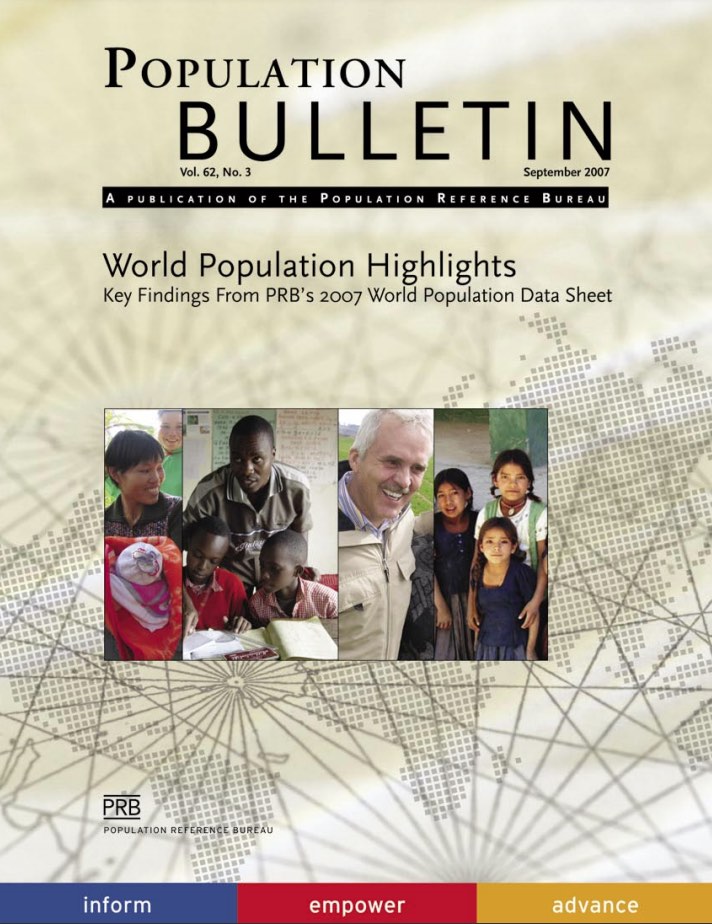Population Bulletin, vol. 63, no.3: World Population Highlights 2008
(2008) In mid-2008, world population stood at 6.7 billion, up from 6.0 billion in 1999. The next milestone, 7 billion, will likely be passed in 2011 or 2012.

(2008) In mid-2008, world population stood at 6.7 billion, up from 6.0 billion in 1999. The next milestone, 7 billion, will likely be passed in 2011 or 2012.

Project: IDEA: Informing Decisionmakers to Act
Ensuring that family planning, reproductive health, and population issues are key for sustainable and equitable economic growth and development.

(August 2009) The Population Reference Bureau released its 2009 World Population Data Sheet on Aug. 12, 2009, at the National Press Club in Washington,DC with presentations highlighting children and youth, the theme of this year's data sheet.
(2000) Fifty-three years after independence, India is still looking for a viable policy to control population growth. Although it was the first country to adopt a family planning program, in 1952, the country is still growing by 15.5 million people each year and, if this trend continues, India may overtake China in 2045 by reaching a population of 1.5 billion.
(2008) Fertility has declined significantly throughout the developing world, and in Latin America total fertility rates (TFRs) have declined by 50 percent over the last three decades, from 5.0 births per woman in 1970 to only 2.5 today.1


(August 2009) The Population Reference Bureau released its 2009 World Population Data Sheet on Aug. 12, 2009, at the National Press Club in Washington,DC with presentations highlighting children and youth, the theme of this year's data sheet.
The Philippines population, health, and environment (PHE) network has developed into a global leader and a model of how to bring diverse institutions together to improve people’s health and well-being while sustaining natural resources for future generations.